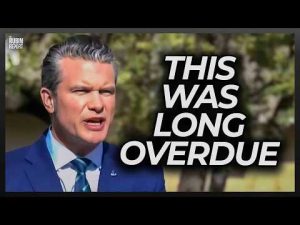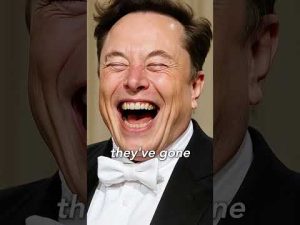**Tariff Turmoil: Could Higher Taxes Lead to Economic Chaos?**
In the ever-evolving world of business and trade, the latest news about exorbitant tariffs has thrown a wrench into the gears of the economy. The sweeping tariffs introduced just last week have raised more eyebrows than a magician at a children’s birthday party. While many might think these new taxes will just mean paying a few extra bucks at the checkout line, the truth is a bit more complex. The real danger lurks in the disruptions to supply chains, which could cause an economic slowdown that we all dread.
The pandemic taught us some harsh lessons about how interconnected our supply chains really are. When one link in the chain breaks, it’s not just a simple switch that can be flipped back on. Getting goods and services back to normal can take time, and longer tariffs mean longer recovery periods. If President Trump doesn’t act fast—say, by implementing a 90-day tariff moratorium for countries willing to negotiate—we may find ourselves facing an economic downturn that feels like it hit us out of nowhere.
Markets are currently scratching their heads over the oddities of the recent tariff announcements. For example, Taiwan is facing an astounding 32% tariff, despite having an average tariff rate of just 2%. Meanwhile, Brazil is giving U.S. imports a hard time with all sorts of tricky regulations, while Chile, which is part of a free trade agreement, is getting hit with the same hefty tariffs as Brazil. It doesn’t take a genius to realize that something is off-kilter here.
Interestingly, some of the quirkiest tariffs seem to target places that wouldn’t even buy American goods. Case in point: a 10% tariff on the remote Heard and McDonald Islands, which are mostly inhabited by seals and penguins. One must wonder, are those penguins really the reason for America’s trade deficit woes? Probably not, yet these tariffs continue, based solely on calculations that divide trade deficits by imports, leading to bizarre outcomes.
The idea that a trade deficit signifies economic weakness is fundamentally flawed. A trade imbalance simply represents the amount of goods we import versus what we export. It does not reflect the overall health of a nation’s economy. Historically, the U.S. has experienced trade deficits while simultaneously enjoying periods of rapid economic growth, including the booming 1800s. The focus should be on issues like high taxes, which President Trump started addressing during his first term, rather than worrying about the balance of trade.
To avoid a potential economic disaster, lifting these tariffs should be a top priority. It is clear that taxes, regulations, and the overall size of government play much more significant roles in determining economic health than the trade balance alone. The sooner these tariffs are re-evaluated and perhaps removed, the better off we’ll be. Because while tariffs might seem like a quick fix, the long-term implications may leave us all feeling rather penguin-like—stuck on an iceberg with nowhere to go.







